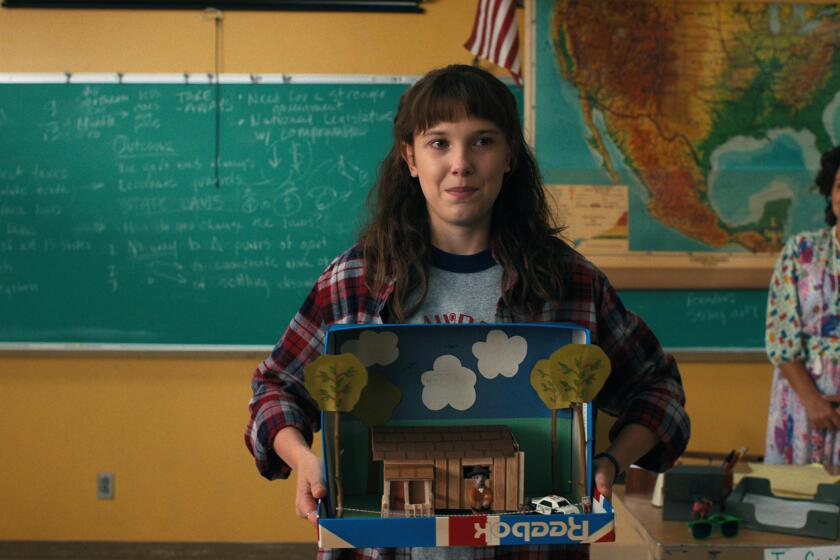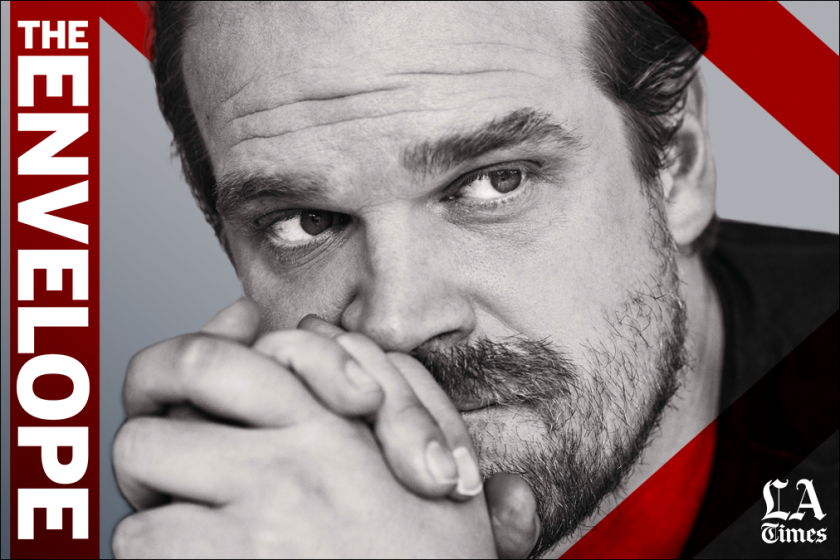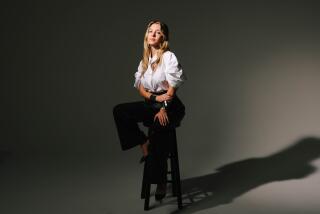Sadie Sink is more than a ‘Broadway girl.’ Meet the ‘Stranger Things 4’ standout
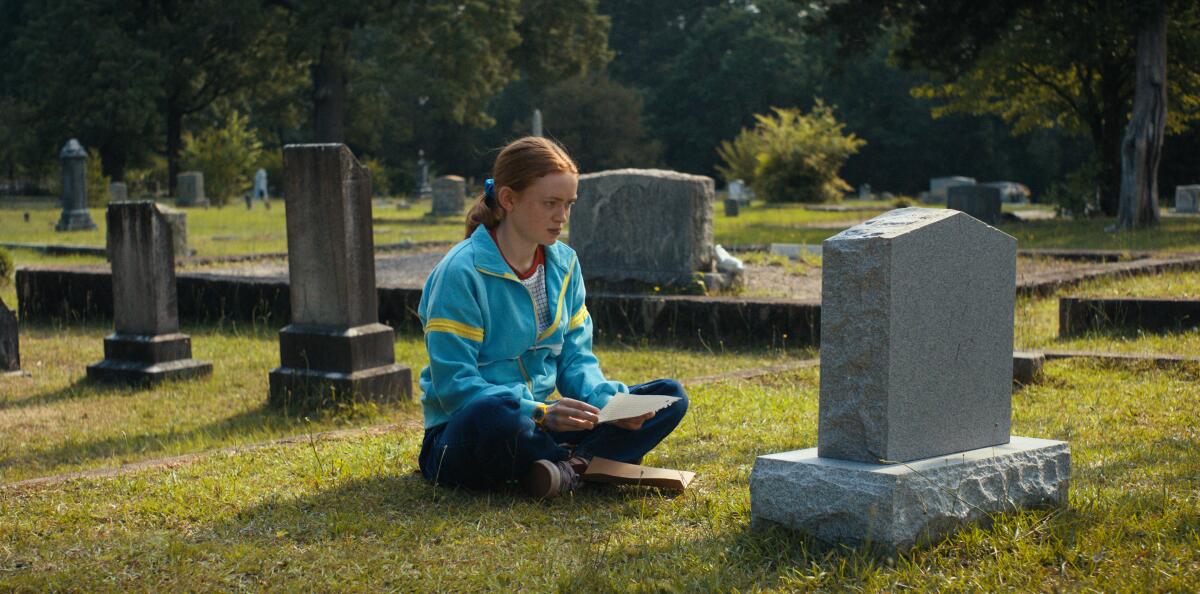
When Sadie Sink (“Fear Street Part 2: 1978”) was cast as Max Mayfield in Season 2 of Netflix’s “Stranger Things,” the character — who Sink describes as a “weird” yet “effortlessly cool” gamer with a “closed off” demeanor — she epitomized what the series values most: a nerd.
There are glimpses of Max’s difficult home life and cruel stepbrother, Billy (Dacre Montgomery), in her introduction to “Stranger Things,” and she develops a sense of belonging in the endlessly eerie town of Hawkins, Ind., in Season 3. But it’s “Stranger Things 4,” now streaming, that offers the deepest insight yet into the character — ushering a traumatic chapter for the “fierce” young skateboarder, one that could cost her her life.
Set in 1986, just months after the abusive Billy is killed during the battle of Starcourt Mall, the fourth season of the Duffer Brothers’ hit, which blends teen drama, horror, sci-fi and 1980s nostalgia, finds Max facing off against not only fantastical creatures, but also her own demons.
“Season 4 is when we really dive into the immense amount of pain that she’s in as a result of Billy’s death and the grief that she’s processing,” Sink told The Times via video conference. “It’s really rooted in the guilt she feels towards Billy’s death, and she’s kind of put a lot of it on herself.”
The oft-nostalgic Netflix series succeeds in Season 4 by treating adolescence as the torturous experience it is for those who don’t fit in.
Sink is satisfied with the decision to explore Max more than ever this season, including her “innermost thoughts” and “vulnerability.” Worse, she has to deal with the aftermath of Season 3 at one of the worst places for a nerd: high school, where Max’s most important relationships are in flux. Her former boyfriend, Lucas (Caleb McLaughlin), is now a jock on the basketball team. Pals Mike (Finn Wolfhard) and Dustin (Gaten Matarazzo) are as obsessed with Dungeons & Dragons as ever, having fallen under the sway of an older boy in Hellfire Club. And Will Byers (Noah Schnapp) and the psychokinetically powered Eleven (Millie Bobby Brown) are thousands of miles away in California. Max becomes a loner once again, isolating herself from others and making herself more susceptible to the series’ newest villain, Vecna.
Max’s mind becomes a literal battleground between her and the central antagonist of Season 4. Her role this season grows even more in the final two episodes, premiering July 1, as “she’s put in a difficult position to step up as a leader in Episodes 8 and 9,” teased Sink.
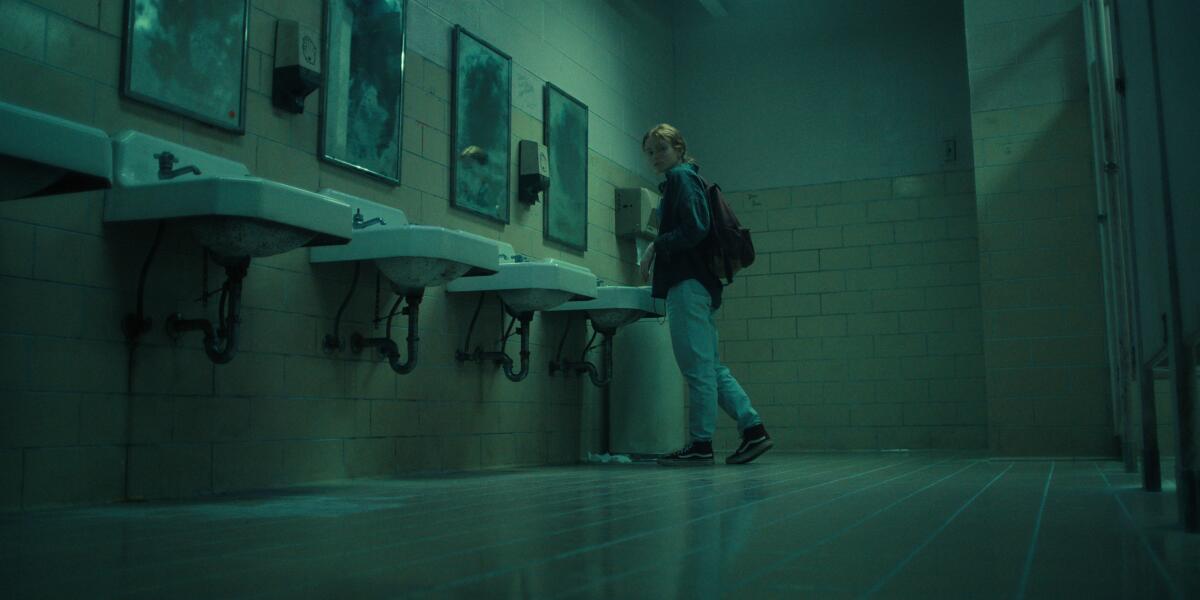
“Everyone has different coping mechanisms, and for some opening up to others is really helpful,” Sink explains. “I think it could be helpful to Max, but it doesn’t operate like that for her. It’s easier to just avoid the conversation altogether and it’s what she’s done in the past: suppressed some of the scary emotions.” (She channels her feelings into music instead, inspiring a revival of interest in Kate Bush’s classic “Running Up That Hill.”)
As a result, Max also reflects the dangers of avoidance and isolation — when it comes to both mental health and battling monsters. “It catches up to her in a way where the feelings just become so dark, and suppressing those feelings ends up hurting her even more,” Sink said. “Isolating herself from the people in her life that care the most and would be willing to help the most puts her in an even more dangerous mind-set.”
And though she has a little help from her friends, it’s Max’s willpower that allows her to challenge the forces against her. “Stranger Things 4” may focus on supernatural obstacles, but Max’s story arc represents the very normal human experience of processing the loss of someone with whom she’s had a complicated relationship, and then dealing with the fallout.
‘Stranger Things’ star David Harbour discusses Hopper’s transformation, his own mental health journey, and ‘Black Widow’ parallels.
“It wasn’t so much that she really loved [Billy] and cared about him,” she says. “He was a huge part of her life and his death, his absence, shook up her family and caused a domino effect [of] horrible things that happened since he died.”
Like others processing a loss, Max asks herself lots of questions to make sense of the situation, something Sink herself channeled in order to understand the character’s evolution. Thinking it important to reflect Max’s internal struggle, Sink kept a journal to chronicle the character’s thoughts and feelings throughout the season and get to the core of what she was going through. “For a few minutes every night, I’d look at a specific scene and write about it from Max’s perspective,” she said. “Which is a common thing you do in theater school growing up.”
A departure from her roots in stage musicals such as “Annie,” “Stranger Things” took Sink out of her element; in particular, adapting to acting for the camera was “intense.” But she isn’t just a “Broadway girl,” she said, and conquering her fears about the transition from stage to screen connected her to Max in unexpected ways.
“Max’s storyline this year feels really real, and hopefully (or not hopefully) people will resonate with it and see a little bit of themselves and maybe be inspired to persevere like her, given the odds within her family dynamic [and the] even crazier supernatural elements that aren’t as relatable,” Sink said. “Extreme circumstances where you feel like there’s no hope, but you still keeping pushing forward, like Max does.”
More to Read
The complete guide to home viewing
Get Screen Gab for everything about the TV shows and streaming movies everyone’s talking about.
You may occasionally receive promotional content from the Los Angeles Times.
